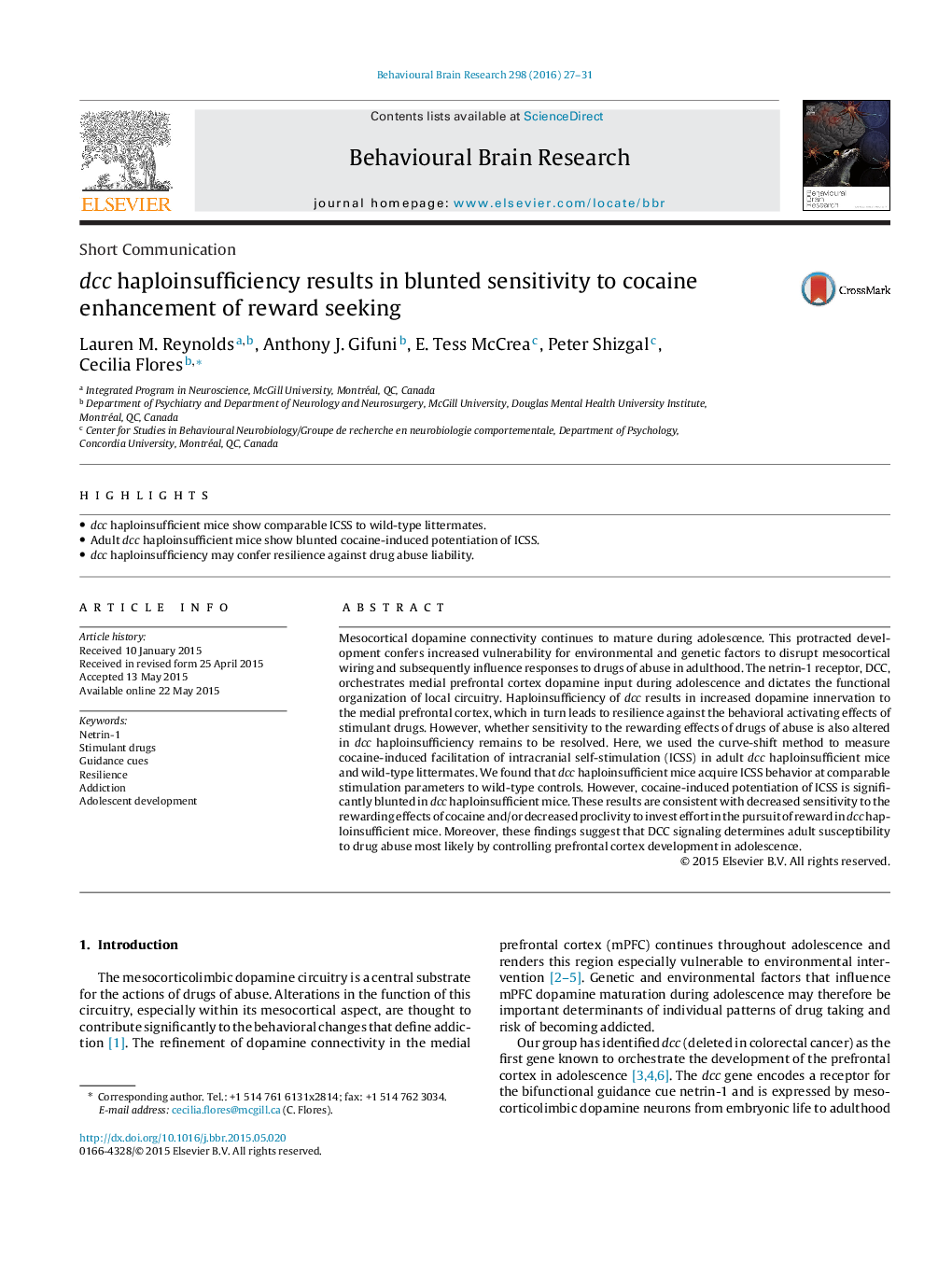| Article ID | Journal | Published Year | Pages | File Type |
|---|---|---|---|---|
| 6256341 | Behavioural Brain Research | 2016 | 5 Pages |
•dcc haploinsufficient mice show comparable ICSS to wild-type littermates.•Adult dcc haploinsufficient mice show blunted cocaine-induced potentiation of ICSS.•dcc haploinsufficiency may confer resilience against drug abuse liability.
Mesocortical dopamine connectivity continues to mature during adolescence. This protracted development confers increased vulnerability for environmental and genetic factors to disrupt mesocortical wiring and subsequently influence responses to drugs of abuse in adulthood. The netrin-1 receptor, DCC, orchestrates medial prefrontal cortex dopamine input during adolescence and dictates the functional organization of local circuitry. Haploinsufficiency of dcc results in increased dopamine innervation to the medial prefrontal cortex, which in turn leads to resilience against the behavioral activating effects of stimulant drugs. However, whether sensitivity to the rewarding effects of drugs of abuse is also altered in dcc haploinsufficiency remains to be resolved. Here, we used the curve-shift method to measure cocaine-induced facilitation of intracranial self-stimulation (ICSS) in adult dcc haploinsufficient mice and wild-type littermates. We found that dcc haploinsufficient mice acquire ICSS behavior at comparable stimulation parameters to wild-type controls. However, cocaine-induced potentiation of ICSS is significantly blunted in dcc haploinsufficient mice. These results are consistent with decreased sensitivity to the rewarding effects of cocaine and/or decreased proclivity to invest effort in the pursuit of reward in dcc haploinsufficient mice. Moreover, these findings suggest that DCC signaling determines adult susceptibility to drug abuse most likely by controlling prefrontal cortex development in adolescence.
